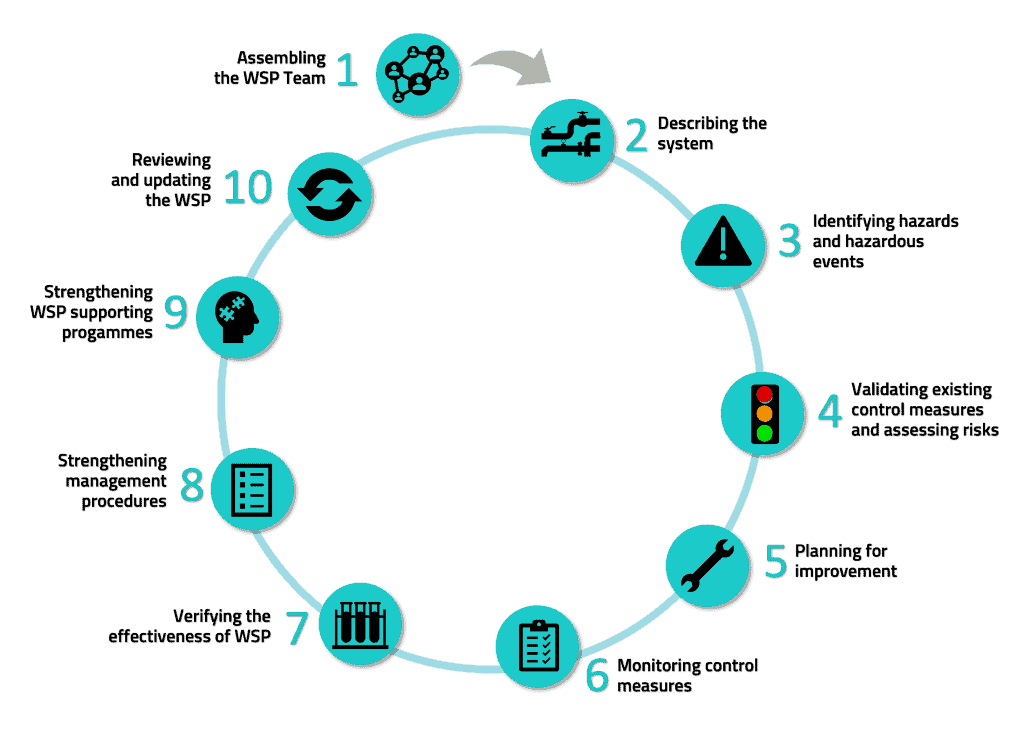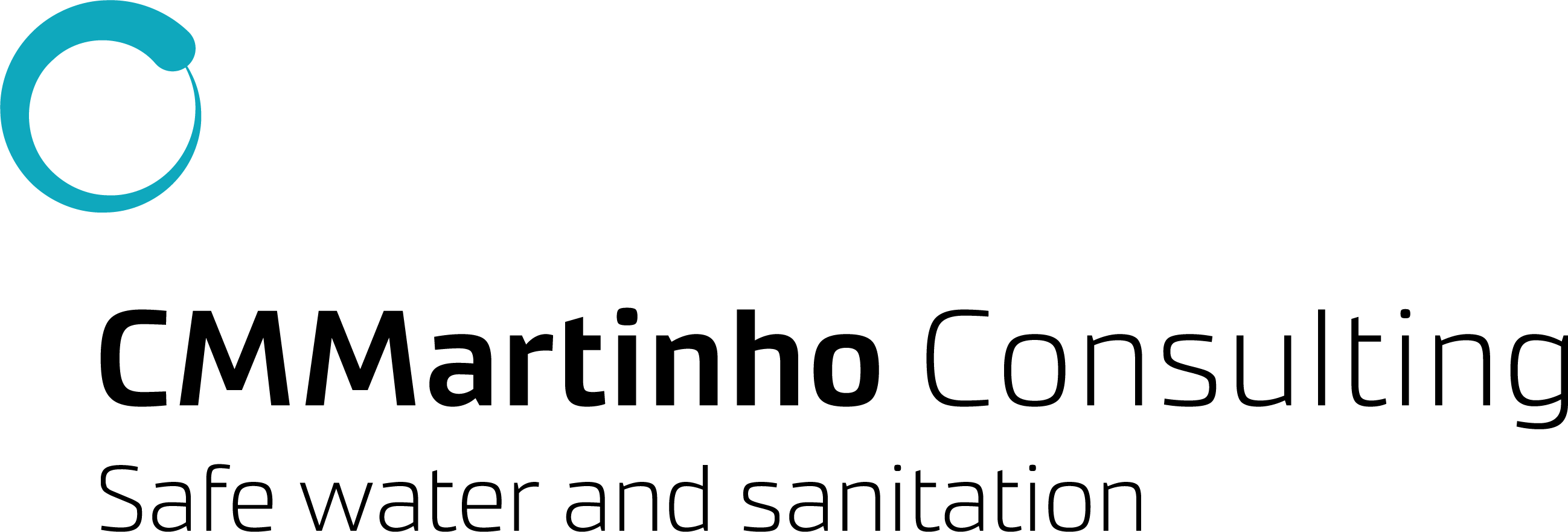Water Safety Plan is a methodology recommended by the World Health Organization (WHO) since 2004 to ensure safe drinking water (access here to WHO/IWA manual).
This methodology is based on risk assessment and risk management throughout the system, from catchment to the consumer. In this way it is possible to identify and anticipate any problems that may exist and implement measures to prevent them from occurring.
WSP provides guidance on how to apply effective and achievable management actions in order to improve the integrity of the drinking water supply system. As result, earlier detection of deviation from the normal operation provide a timely and faster reaction to never compromise the delivery of safe drinking water.
WSP Methodology
The Water Safety Plan methodology applied by CMMartinho Consulting is based on the WHO Guidelines and EN15972-2. Therefore, it does not only take into account the water quality but also that the water is continuously provided with the quantity and the pressure appropriate to the needs of its users. As such, this risk assessment and risk management approach makes it possible to maximize its benefits and to ensure the integrity of the system with the distribution of safe water.
Following is presented a simplified scheme of the WSP methodology.

Legal framework
In European Union, the Directive (EU) 2020/2184 of the European Parliament and of the Council, of 16 December 2020 on the quality of water intended for human consumption, introduce that the risk-based approach should be applied by all water suppliers.
How can we help you?
We provide:
- Technical assistance to do a risk assessment and/or a risk management for water suppliers
- Revision of WSP
- Audit of WSP
- Training of WSP
For more information, contact us
See other Services


